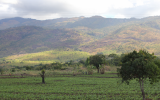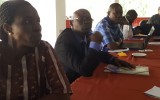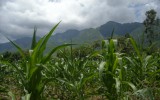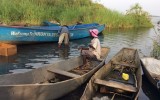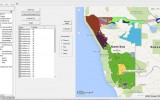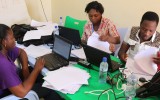HEA
Showing items 1 to 15 of 17
View Categories
- Areas of expertise
- Capacity building
- Climate change
- Data
- Disasters and emergencies
- Famine prevention and food security
- Gender
- Income diversification
- Inequality
- Lake Victoria fisheries
- Livelihood resilience
- Livelihood Zones
- Livelihoods
- Monitoring and evaluation
- Nutrition and health
- Open source
- Policy and programme design
- Post-conflict
- Poverty research
- Refugees and displacement
- Social protection
- Technology
- Urban
- Vulnerability assessment
- Countries
- Hydromet
- Methods
- Resilience
- The organisation
-
Seeing the Story Behind the Dataset: Perspectives from an Internship
While studying at King’s College London, having the opportunity to work with EfD has been one of the greatest honors and the most rewarding parts of my experience in the UK. I was initially drawn to EfD’s mission of providing reliable data for policymaking in developing countries. Throughout my academic and professional background, I’ve found […]
-
Livelihood Zones & Household Economy Approach (HEA) Survey Report, Homa Bay County, Kenya (2018)
Acidri, J., Machuki, H., Seaman J., (2018) Report on a livelihood study in Homa Bay County, Kenya using the Household Economy Approach (HEA) Evidence for Development Working Paper: 10 DOI 10.5281/zenodo.5113445 This report summarises the findings of a survey of household economy conducted in part of Homa Bay County, Kenya and includes a description […]
-
Report on a pilot study in Mukono District, Uganda, using the Household Economy Approach (HEA) (2016)
Seaman, J.A., Acridri, J., Machuki , H., (2016) Report on a pilot study in Mukono District, Uganda, using the Household Economy Approach (HEA) Evidence for Development Working Paper 6 DOI 10.5281/zenodo.5113323 This report gives an initial summary of the findings of a survey of household economy conducted in part of Mukono District, Uganda.
-
Livelihoods around Lake Wamala (Mityana District) and Lake Victoria (Mukono District): A scoping study (2015)
Acidri, J., (2015) Scoping Study: Livelihoods around Lake Wamala (Mityana District) and Lake Victoria (Mukono District) Evidence for Development Working Paper 5 DOI 10.5281/zenodo.5113298 This report in selected sites around Lake Wamala and Lake Victoria provided initial contextual information for more detailed household economy studies, carried out as part of the HyCRISTAL (Integrating Hydro-Climate […]
-
Imagine all the snows of Mount Kilimanjaro had melted
At the HyCRISTAL AGM in Kampala last month, climate change researchers were talking about 40-year horizons, where we did an exercise in small groups to each imagine the consequences of one of a list of possible scenarios. We were given our scenario and asked to work back to what we would have to do now, […]
-
How new technologies can make a difference to rural smallholder farmers.
Some of you may have seen this piece on the BBC about “How missing weather data is a ‘life and death’ issue”. It’s about tech start-up Kukua, and the weather stations they have installed in Tanzania to help provide local commercial farmers with better forecasts. Kukua is a business with a rather unusual business model: […]
-
Measuring resilience to climate change in the Lake Victoria basin
Just over a year ago the UK Department for International Development (DfID), with the Natural Environment Research Council (NERC) launched its ‘Future Climate for Africa’ (FCFA) project. This £20 million project, involving five research consortia, aims to “generate fundamentally new climate science focused on Africa, and to ensure that this science has an impact on […]
-
New HEA software developed by Evidence for Development
The household economy approach (HEA) is a method for assessing the vulnerability of rural populations to economic shocks and changes, based on their livelihood patterns and market information. It is now widely used as a method of famine early warning by many governments and humanitarian agencies, and also has important applications for managing the impacts […]
-
Mobile data, measurement & evidence… what’s new?
As mobile data collection in remote regions and developing countries becomes more viable for development organisations, the robustness of the methodologies used must be considered in relation to the goal of evidence-based development. Expanded possibilities According to the UN International Telecommunication Union, “by the end of 2014, 55% of all mobile-broadband subscriptions are expected to […]
-
The Household Economy Approach: Managing the impact of climate change on poverty and food security in developing countries (2014)
Also available at: http://www.sciencedirect.com/science/article/pii/S221209631400031X
-
Livelihood zoning and rural wealth rankings HEA baseline report, Mbala and Luwingu Districts, Zambia (2013)
This baseline livelihoods zoning and wealth ranking exercise examines the livelihood systems in Mbala and Luwingu districts, Northern Province of Zambia. The assessments describe how a livelihood functions during a normal year, thereby providing a base with which to compare and measure any new threats to the population’s food security, as well as to inform recovery and development programming and policy.
